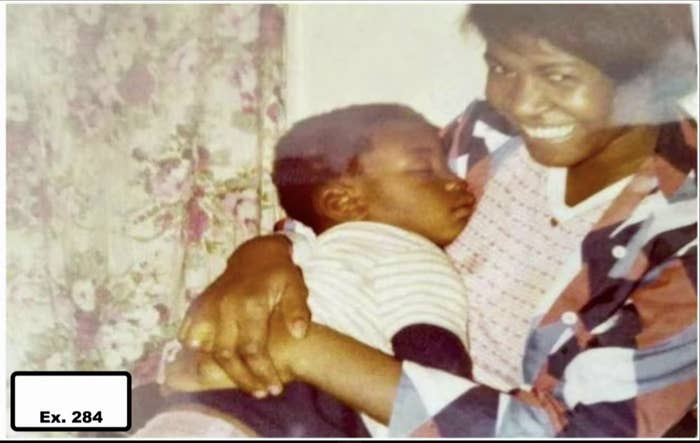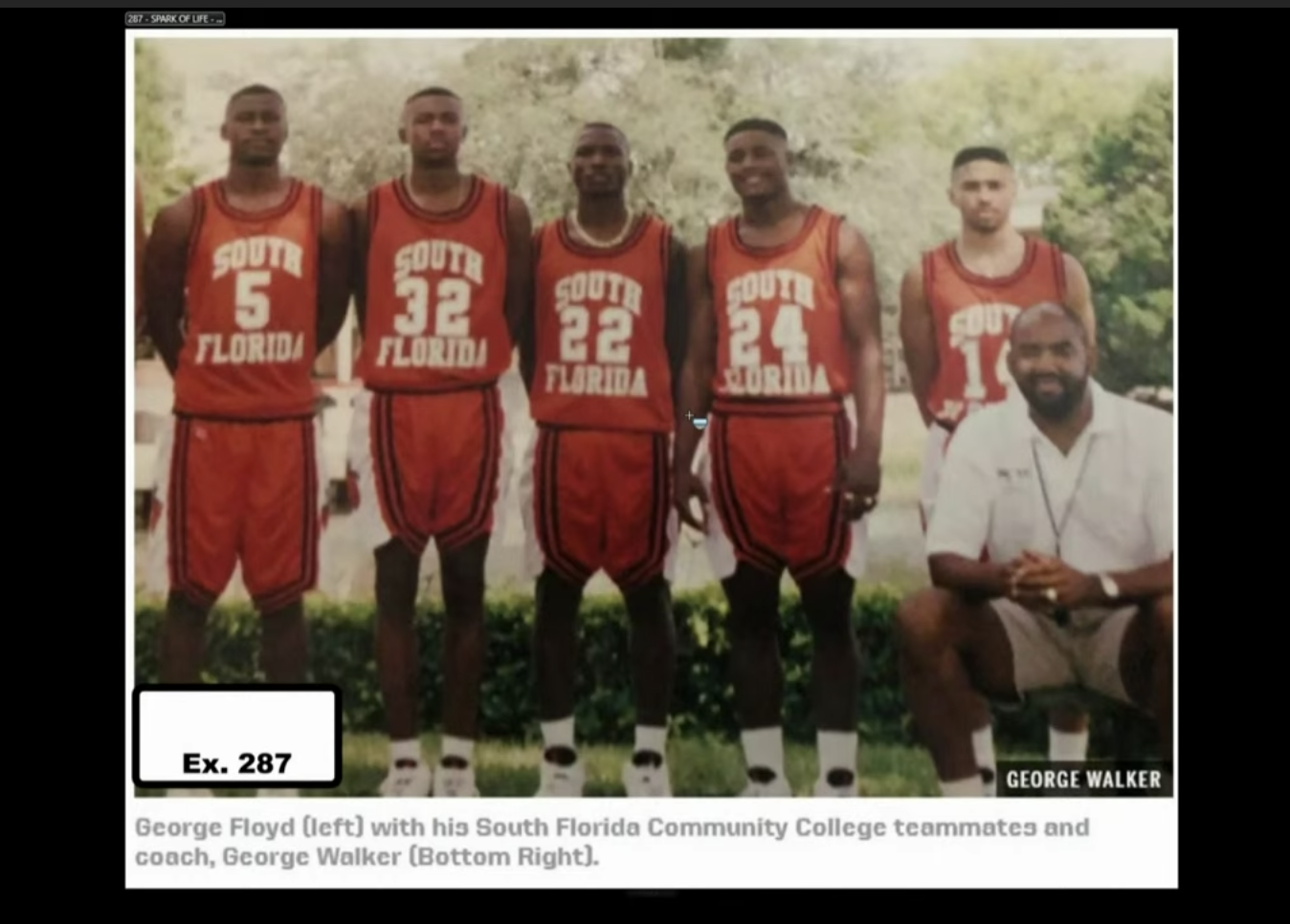
George Floyd, who repeatedly cried out "Mama" as he took his last breaths under the weight of Derek Chauvin's knee on May 25, 2020, was a "mama's boy" who was deeply pained by her death two years earlier, his brother testified on Monday.
In brief but emotional testimony during Chauvin's murder trial, Philonise Floyd told jurors that his oldest brother loved their mother and had a "unique" relationship with her.
Prosecutors called Philonise Floyd as a witness to offer what is legally known as "spark of life" testimony, which is intended to show the jury that Floyd was a real living person and not just a faceless victim.
The trial judge, Peter Cahill, had allowed the spark of life testimony to be about how beloved Floyd was to family and friends, but did not allow it to contain "character evidence" of Floyd, including references to him being a "gentle giant."
Philonise described how Floyd would often lie on their mother in the fetal position "like he was still in her womb."
Their mother, Larcenia Floyd, died on May 30, 2018, in Texas, before Floyd was able to make it there to be with her, which "hurt him a lot," Philonise said. "He loved her so dearly."

At their mother's funeral, Floyd sat by her casket and refused to leave her side, Philonise told the court in tears. "He would just say 'Mama' over and over again," he said.
"He didn't want to leave the casket," Philonise recalled. "He was in pain the entire time."
In response to earlier questioning by Chauvin's attorney, Eric Nelson, Floyd's girlfriend, Courteney Ross, testified on April 1 that Floyd also used to refer to her as "mama," but she told the court that he also called his mother by that name.
Philonise told the jury that being around his brother taught all his siblings how to "treat and respect our mom."
Their mother's funeral was the last time Philonise saw his oldest brother alive, he said.
Floyd was ultimately buried next to his mother in Houston. "You called for mama. We're going to lay your body next to hers," Rev. Al Sharpton said during his funeral last year. "But I know mama's already embraced you, George. You fought a good fight. You kept the faith. You finished your course. Go on and get your rest now. Go on and see mama now. We're going to fight on."
During a congressional hearing on police reform last June, Philonise gave emotional testimony urging lawmakers to enact sweeping changes to address police brutality and racism within law enforcement.
“I am asking you, is that what a Black man’s life is worth? Twenty dollars?” Philonise said during the televised hearing a day after his brother’s funeral in Houston. “This is 2020. Enough is enough. The people marching in the streets are telling you enough is enough.”
Chauvin is charged with second-degree murder, second-degree manslaughter, and third-degree murder in the killing of Floyd.
During Philonise's testimony on Monday, the jury was shown photos of Floyd as a teenager as well as a picture of him with his daughter Gianna, who is now 7 years old.
Philonise took the jury through their childhood growing up in low-income housing in Houston.
He said that Floyd was "a leader to us in the household" and always made sure his siblings had their clothes for school ready and that they went to school on time.
He testified that Floyd couldn't cook or even "boil water" but always made sure that his siblings had a snack to eat. He said that Floyd loved making banana mayonnaise sandwiches and playing video games.
Philonise recalled how much his brother loved playing sports, especially basketball and football, and would often tell his brothers, "Let's go hooping."

He said their home's walls would be filled with lines that Floyd made to measure his height because he "always wanted to be taller."
Philonise said that people in their community would attend church "just because" Floyd was there.
"He was just a person that everybody loved around the community," he said. "He just knew how to make people feel better."
